3,4B: Book Club
Every week, we enjoy our ‘Book Club’ session. This is an opportunity for us to share what we’ve been reading at home, celebrate this and explore different books / authors.
This half-term, we’re reading books as part of a group. This means we can all discuss the same book. We enjoy this and get a lot from having a shared experience of reading.
In our ‘Book Club’ session, we discuss what we’ve been reading…
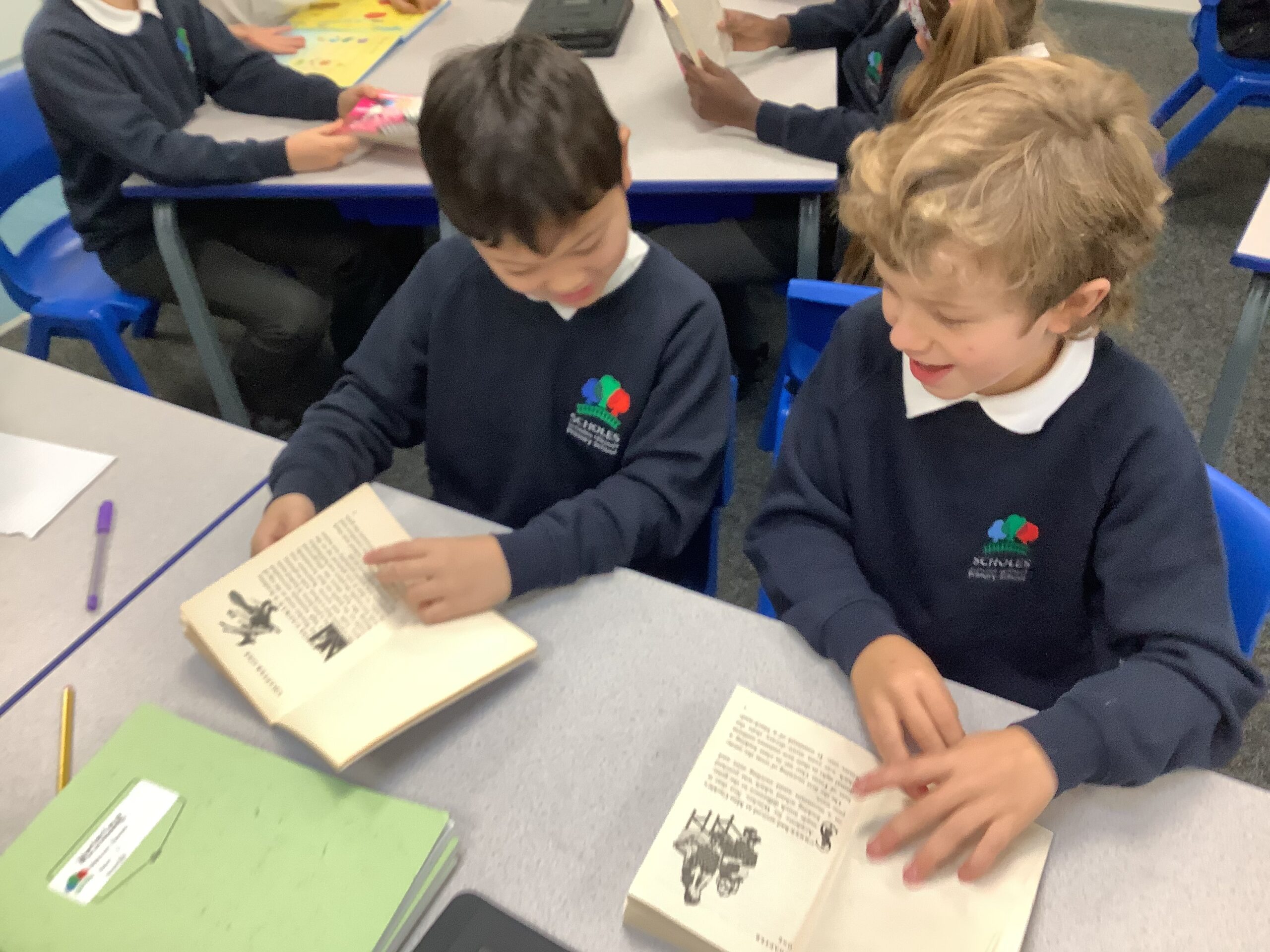

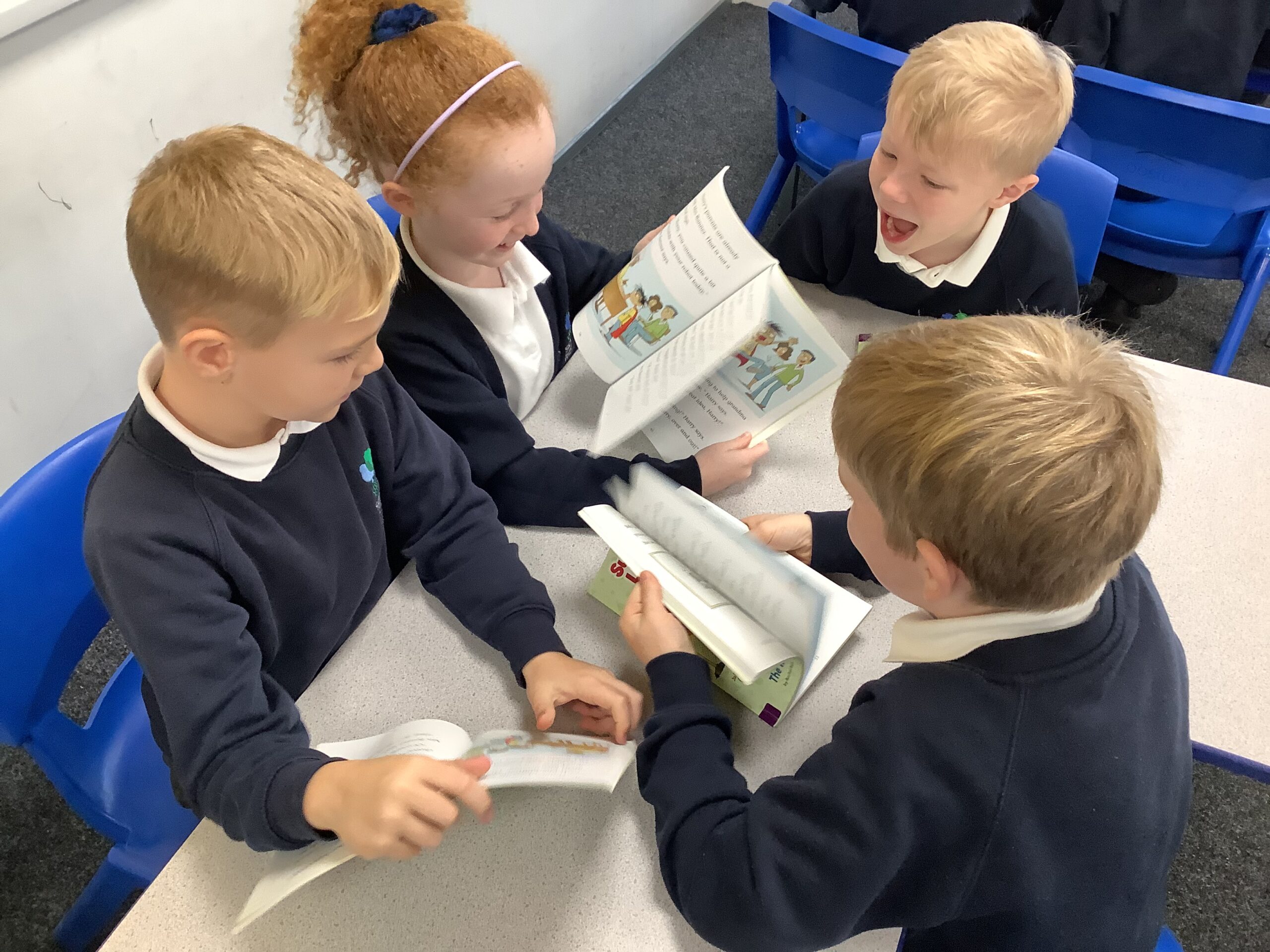
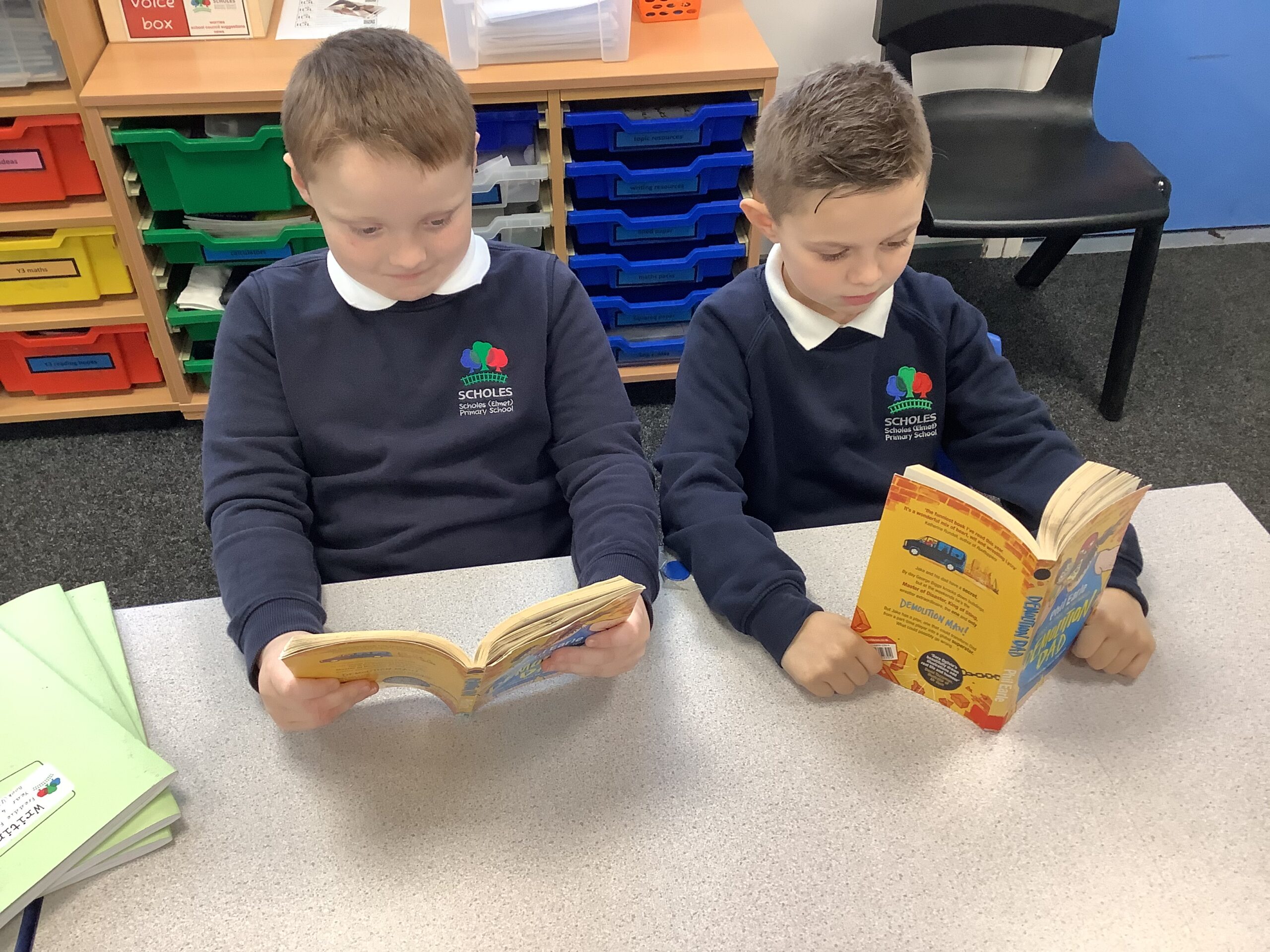
And celebrate the great work we’ve done in our reading journals…
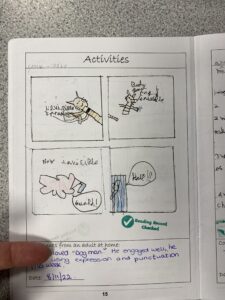
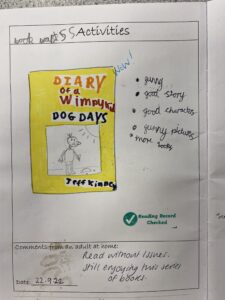

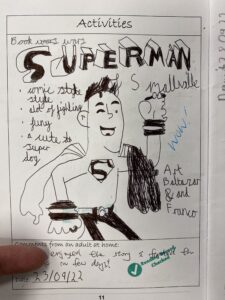
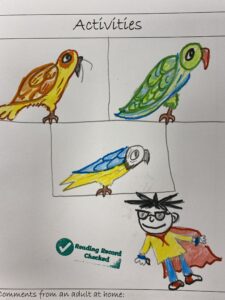
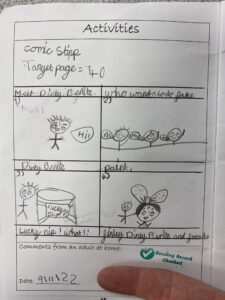
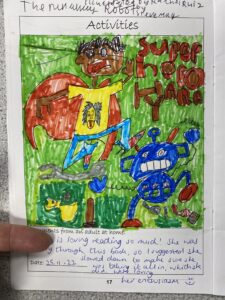

Help at home by…
- asking your child about what they’re reading
- reading every day with your child
- being a reading role model yourself
- encouraging your child to engage with their reading record
We know it’s busy at home. But, equally, we know how important reading at home is!
Science – tyres, air and bouncing!
We have been learning about John Dunlop and his invention of the pneumatic tyre. He wanted to make wheels bouncy and therefore more comfortable to travel with. We tested 4 different balls for their bounciness : a yellow tennis ball, a wool pom-pom, a solid hockey ball and a green plastic football. We made the comparative test fair by rolling the balls from the same place down a ramp. We measured how far the ball bounced back from a table.
Most us of predicted that the tennis ball would bounce the furthest.
The tennis ball and football bounced back from the table but the football bounced the furthest.
The solid hockey ball hit the table and stopped. It didn’t bounce at all.
The pom-pom didn’t reach to table to bounce at all!
We thought that air inside and the stretchy plastic material of the football made it the bounciest.
Class News: 5/6A
How is it Friday evening already? Another jam-packed week of learning and fun has come to an end in Class 5/6A. Let’s take a look at what our pupils have been up to this week.
Firstly, a huge thank you to all parents who came today to join us for our Topic Review. We took part in a quiz which saw us reflect upon all of our Topic learning since the beginning of September. With the parents writing the answers, pupils had to use their books to retrieve information on the Stone Age, druids, mummification and William Morris amongst other things.

Our Writing work this week has seen us complete a set of instructions, linked to our Topic work of creating a lead print. Students have been looking at using parenthesis (brackets, dashes and commas) to join two independent clauses together, as well as structuring equipment lists and putting instructions in a chronological order.
Despite the cold weather this week, our class have been red hot on the hockey pitch in P.E this week. We have developed our skills by working on our defensive blocks – the jab and the block tackles. After practising preventing our opponent from dribbling past us, we then turned into attackers and honed our shooting skills.

Living and Learning this week has seen us continue our discussions around Mental Health, and recognising the importance of talking about how we feel. Identifying those we feel close enough to to share our feelings with is absolutely vital to help young people deal with the wide variety of emotions that they experience.
This week’s Talk Time homework poses a moral question:
Is physical health more important than mental health?
Certificate winners:
Living and Learning – Will. Provided some excellent ideas on how we can use self-care to help protect our own mental health.
Great learning – Elisa. Pushing herself in every subject, particularly in Maths, to be the best version of herself.
P.E – Amelia B. Super dribbling and passing skills in hockey. Fantastic control and awareness.
Peer recognition – Sam Webb. Giving up his own lunchtime to support an injured friend who could not play outside.
Have a great weekend!
Mr. Robson
Living and Learning: Mental Health
Over the past couple of weeks, we have been focusing on the topic of Mental Health in our Living and Learning sessions. In class we have had numerous discussions about what we understand by the term ‘Mental Health’, how do we recognise our own feelings and those of others, and what we can do to provide “self-care”.
We have also explored the importance of talking about our feelings. Talking about our feelings, whether they’re big or small feelings, is a great way to have good mental health. Sometimes it’s starting to talk about things which is the hardest thing to do. As a group we explored our ‘support circles’, recognising those individuals who we have close connections with that we may be able to talk to in times of need.
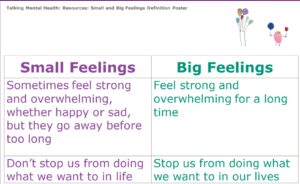
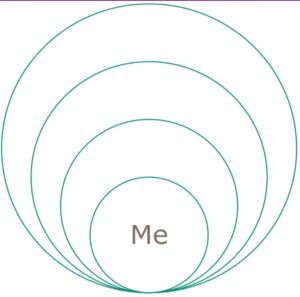
Owl babies
Our Christmas performance
We are so proud of the children’s Christmas performance so far. The children have been joining in with their singing and acting parts really well. We are looking forward to inviting you to watch the performance on Thursday 8 December (10.00-10.45) or Friday 9 December (1.30-2.15).
A reminder if you haven’t already – please ensure your child’s costume is in school. We will be doing a dress rehearsal next week.
Owl babies
This week in literacy we have been reading the book ‘Owl babies’ by Martin Waddell. We drew a story map and retold the story using words and actions. Some children were so inspired that they decided to write their own book about ‘Owl babies’. We shared the books during story time.
A book re-telling the Owl babies story by Mollie –
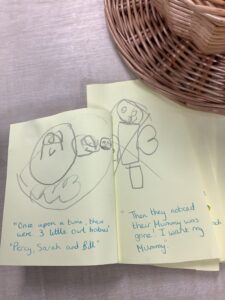
A book about a ‘fluttering snowflake and owls’ by Grace –
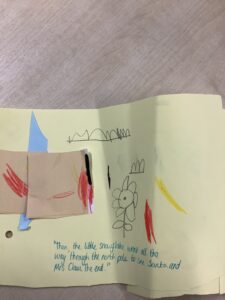
Every week, we look at a new adventurous word. We call this our ‘word of the week’. This week our word of the week was ‘nocturnal’. We looked at the definition – ‘active at night’, drew pictures to represent nocturnal animals and used the word nocturnal in our everyday speech.
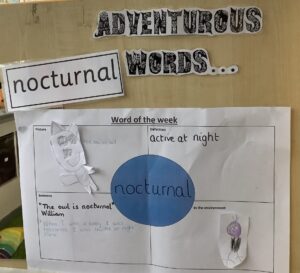
“The owl is nocturnal” William said.
“Percy (owl) is nocturnal…he’s active at night!” Grace said.
“I was nocturnal when I was a baby! I was always up at night.” Esme said.
Top tip for watching YouTube with your child: go to the settings cog (it’s along the play bar) and turn off auto play – this avoids an inappropriate clip coming up automatically, and helps to discourage your child from passively watching clip after clip.
Maths – accurate counting
This week, we have been focussing on accurately counting out objects and remembering to stop. The teachers had lost their counting skills and kept counting out too many objects – it was very silly and made the children laugh! Mrs Flynn tried to collect and count out 4 teddy bears but she forgot to stop and kept on counting. The children had to re-teach the teachers and remind them to STOP at the stopping number (the number of objects asked to collect).
Often, when counting out a number of objects, children will forget to stop at the correct number. The skill to stop at the correct number is something we focus on and call cardinality.
Ask your child to collect a number of objects at home. Can they STOP at the correct number?
Phonics
This week, the children haven’t learnt any new phonemes. It has been our ‘review week’ where we review all the phonemes we have learnt so far. They’ve also been practicing reading words with ‘s’ at the end. Can your child read the following words?
zips
ships
ducks
chips
We have learnt a lot of tricky words so far and it is a real challenge for your child to remember them all. To support your child’s reading, play the game below.
A tricky word is a word you cannot sound out – you just have to know it by sight!
Phonics home-link activity
Play tricky word BOO!
What you will need:
- the following tricky words written on individual pieces of paper; and, as, I, is, the, and, has, we, me, be, he, she and his.
- the word BOO written on a few pieces of paper
- cup (to put the words in)
How to play:
- Take it in turns to pick a word out of the cup.
- Read the word.
- If you pick BOO you have to put all of your words back!
- The person who has collected the most tricky words at the end wins!
Poetry Picnic
Each week, we will be learning a new poem. We will recite this poem each day. By saying the poem out loud we can focus on the sounds and rhythm of each word or line. This week’s poem is ‘wise old owl’.
We talk about how a poem sometimes has rhyming words and sometimes doesn’t. Can your child tell you the rhyming words in this weeks poem? We also talk about how a poem can have a fast rhythm or a slow rhythm. Can your child tell you if this week’s poem is fast or slow?
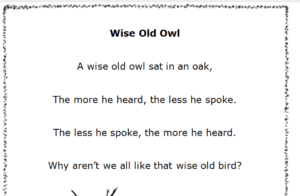
Stamps!
Next week, your child will be learning all about what happens to our post when reading the story ‘The Jolly Christmas Postman’. To enhance your child’s learning experience, we will be writing and then posting a postcard home.
If you would like your child’s postcard to be posted through the Royal Mail please provide a stamp in a named envelope by Friday 9th December. Alternatively, your child’s postcard will be brought home by your child.

Printing fun!
Year 5/6 have been busy creating more prints this week as part of our art topic. The children in a previous lesson had already created a leaf design on a polystyrene tile. They’d used this to create a simple print using acrylic paint. Moving on, the children have now added more detail to their leaves, such as veins and blemishes. The children selected alternative colours this time to print over the top of their original prints. The children thought really carefully about their colour choice. Did they want vibrant colours or complementary colours? It was great to see the children discussing their art with each other and thinking of changes and improvements to their original designs.
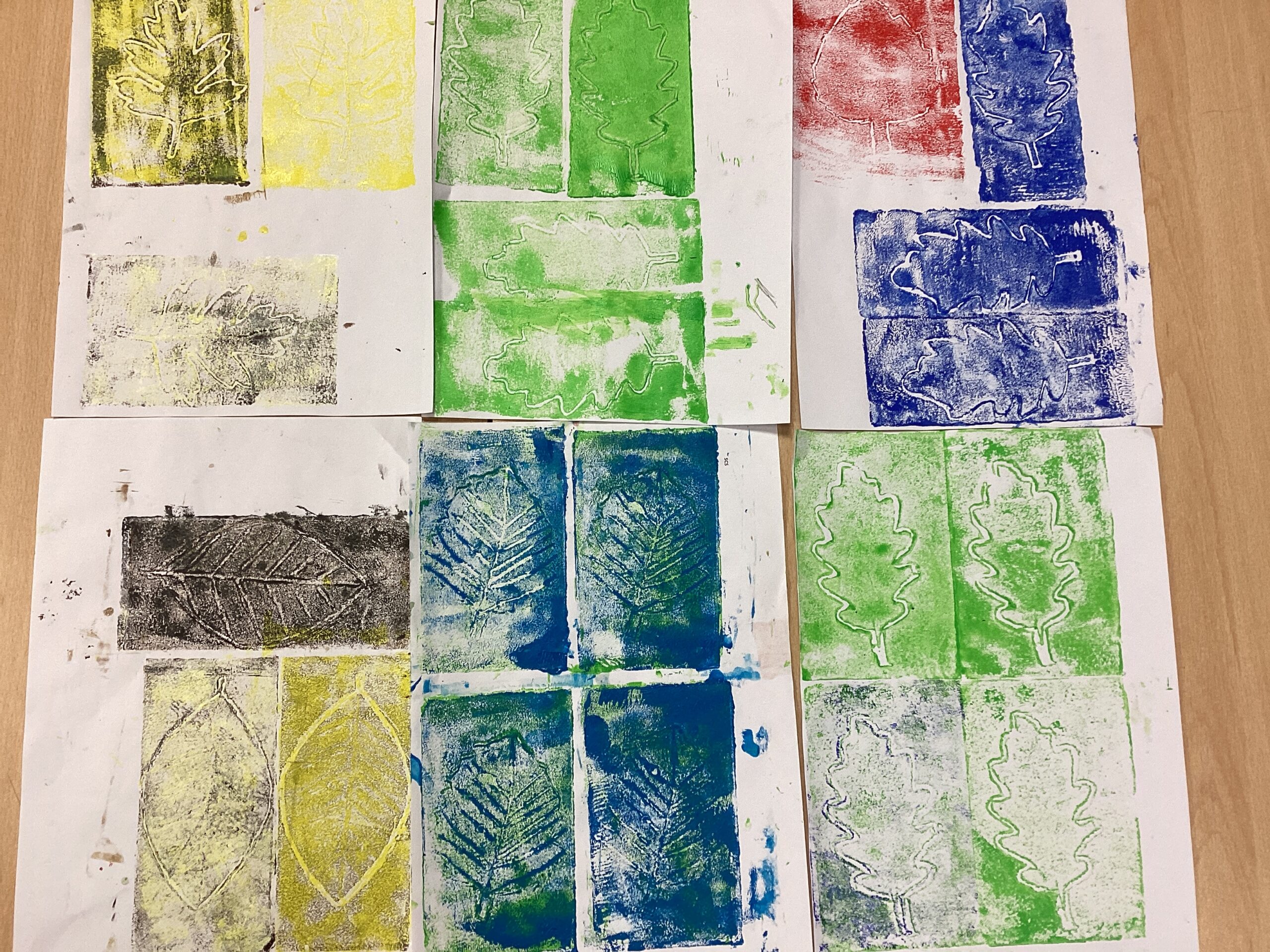
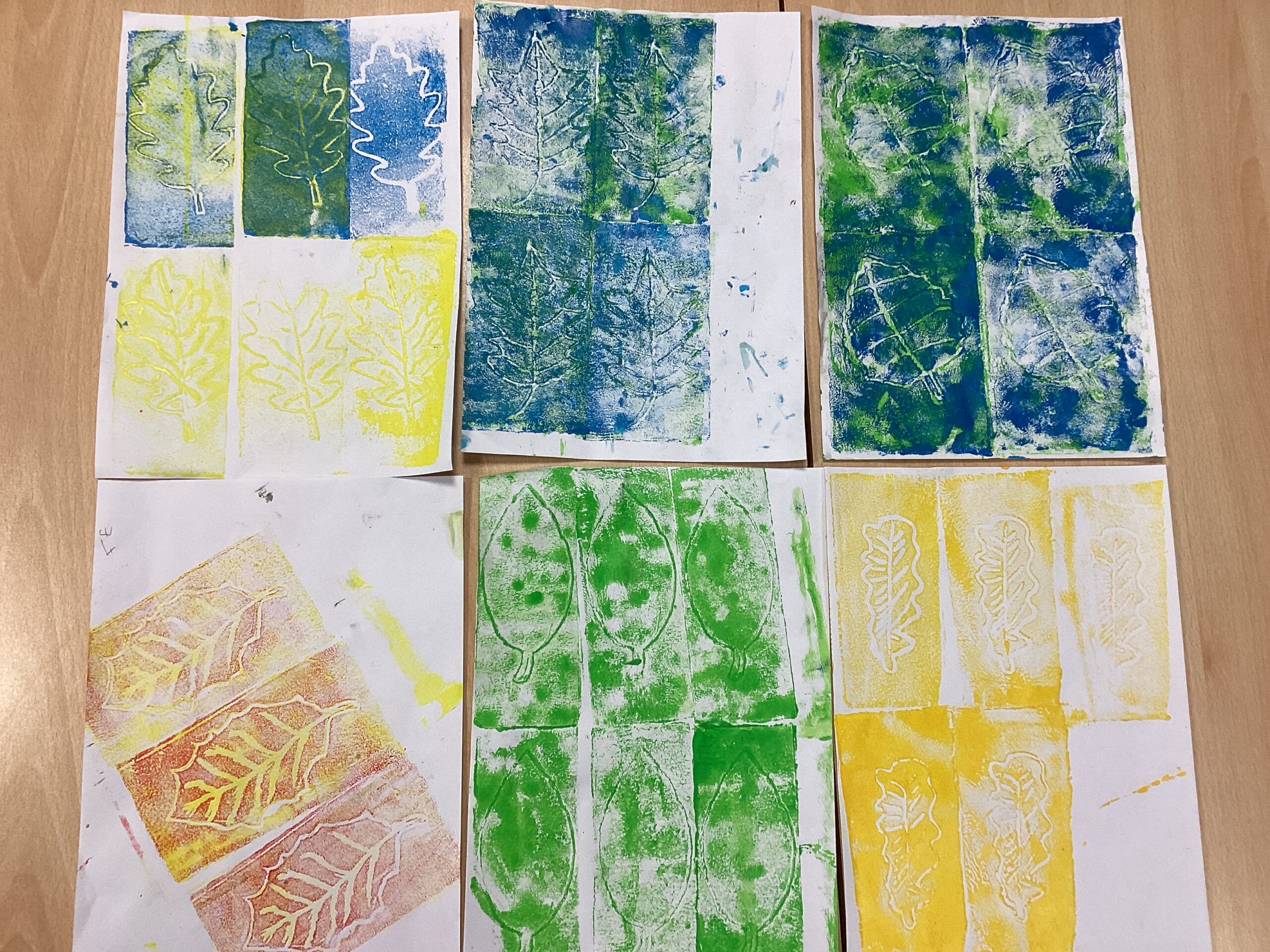
Science: water resistance
Does the shape of an object affect how quickly it moves through water?
Children carried out a very wet experiment today. They used modelling clay to create different shapes that would cut through the water.
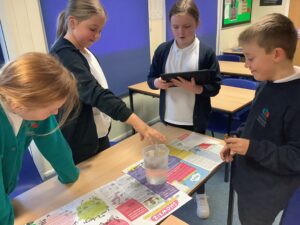
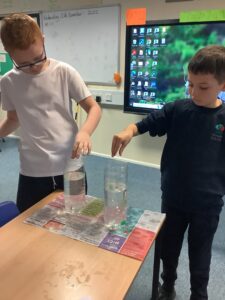
Meeting a real life author!
Today we had a very special virtual visitor in KS1. Popular children’s author Beth Woolvin, gave a virtual workshop all about her brilliant book, ‘Little Red.’ We read the book together and were also given a step-by-step guide on how to draw our own Little Red. The children had a fantastic time.
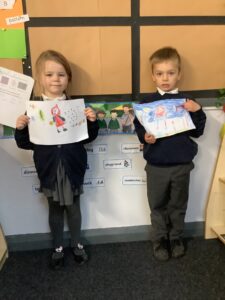
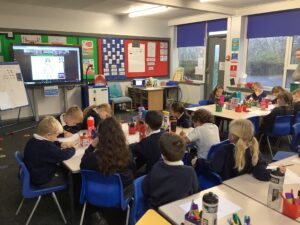
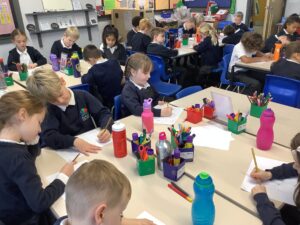
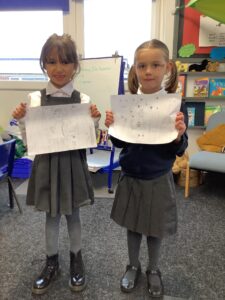
Art – Bridget Riley
During this half term’s topic, we have been looking at optical art by Bridget Riley. She has inspired us to create our own pieces of optical art using straight lines.
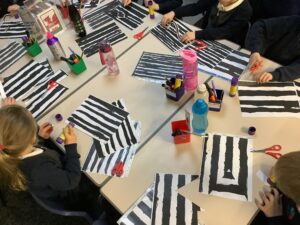


Living and Learning: self-care techniques
This week, year 5/6 have been discussing how they could improve their mental health through self-care techniques.
We watched this short video to gain a better understanding of self-care techniques and get some ideas about what we can do.
At home, set aside some time to discuss which self-care techniques work for you. Remember, not all self-care techniques work for everyone. Give them a go and if you enjoy it, try to make it a regular thing.
Some children decided that they would try deep breathing. Others suggested that spending more time with their parents might help. Finding time for yourself or being around positive people can have a dramatic influence on lowering your stress levels and boosting your engery.









